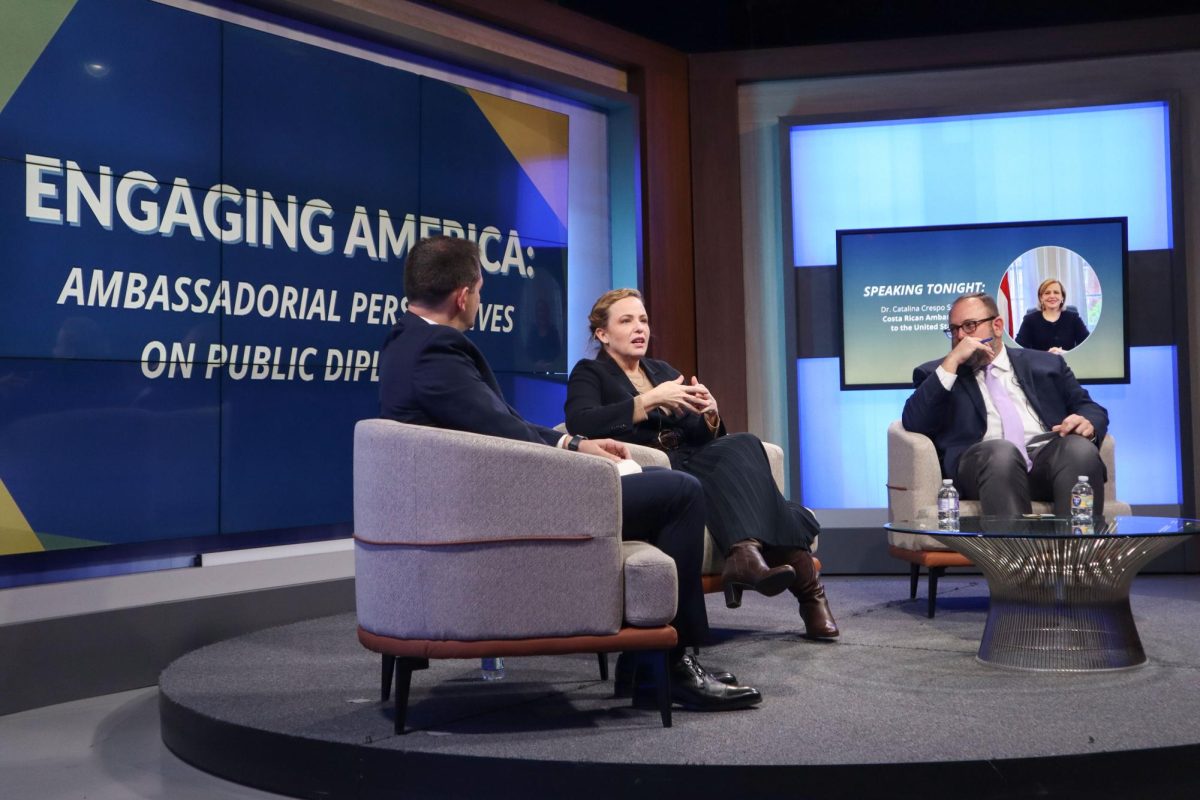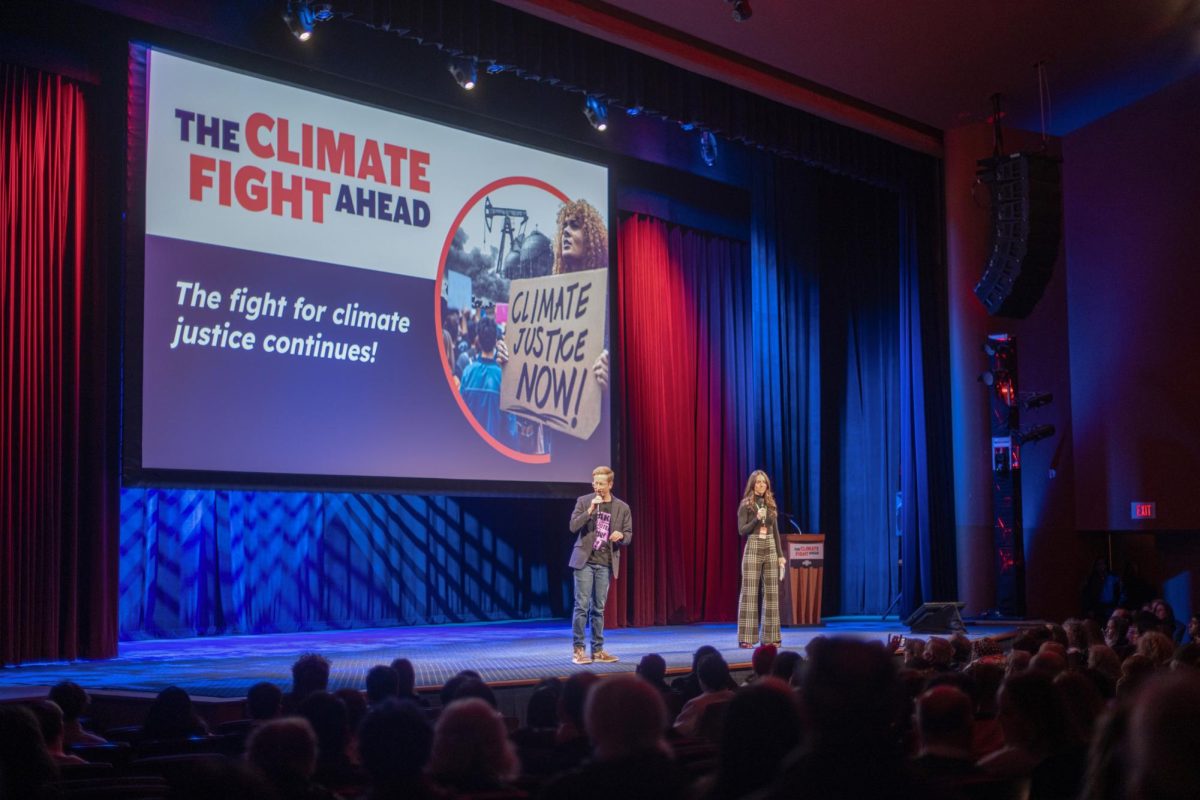A panel of media experts discussed journalists’ culpability in facilitating and perpetuating the Iraq War just a few days after the 20th anniversary of the war Wednesday.
Reuters National Security Correspondent Jonathan Landay, Quincy Institute for Responsible Statecraft Senior Advisor Kelley Beaucar Vlahos and Jewish Currents’ Editor-at-Large Peter Beinart discussed media’s role in war and peace. The Quincy Institute, GW’s Institute for Middle East Studies, The Nation magazine and the political podcast Breaking Points sponsored the event, which was moderated by Krystal Ball, the host of Breaking Points.
Landay said he and his writing partner Warren Strobel won the Raymond Clapper Memorial Award in 2003, a prestigious journalism award, at the now-defunct media company Knight Ridder for their work about the invasion of Iraq and how former President George W. Bush’s administration sold the war to the American public.
“I would wake up at night, two o’clock, three o’clock in the morning, after we’ve run one of our big stories refuting the administration’s case on the intelligence or the alleged link between Saddam Hussein and al-Qaeda and bin Laden, and wonder, ‘Why are we the only ones out there doing this?’” Landay said.
Beinart said the ethos of American exceptionalism – the idea Americans are essentially good and their enemies are bad – contributed to the U.S. government’s decision to start the Iraq War and other American military interventions like the Afghanistan War and Vietnam War.
“We don’t have enough people in important positions of the media, who, when they think about the history of American foreign policy, they think about America’s toppling of democratic regimes all over Latin America and the Middle East, Africa,” Beinart said.
Vlahos said while writing for Fox News at the time of the war, she found fellow conservative journalists unwilling to question and criticize the Bush administration for fear of alienating readers with unpopular reporting.
“They were really closing ranks, as they say, about this, and that was really disturbing to me,” Vlahos said.
Vlahos said the influence of a few corporations over mainstream media risks dominating journalism today with a single, convenient narrative.
“It’s going to be difficult when you have all of the mainstream media owned by six conglomerates,” Vlahos said. “And they have different incentives and different interests, and it’s called money and shareholders and it’s not about journalistic integrity.”










